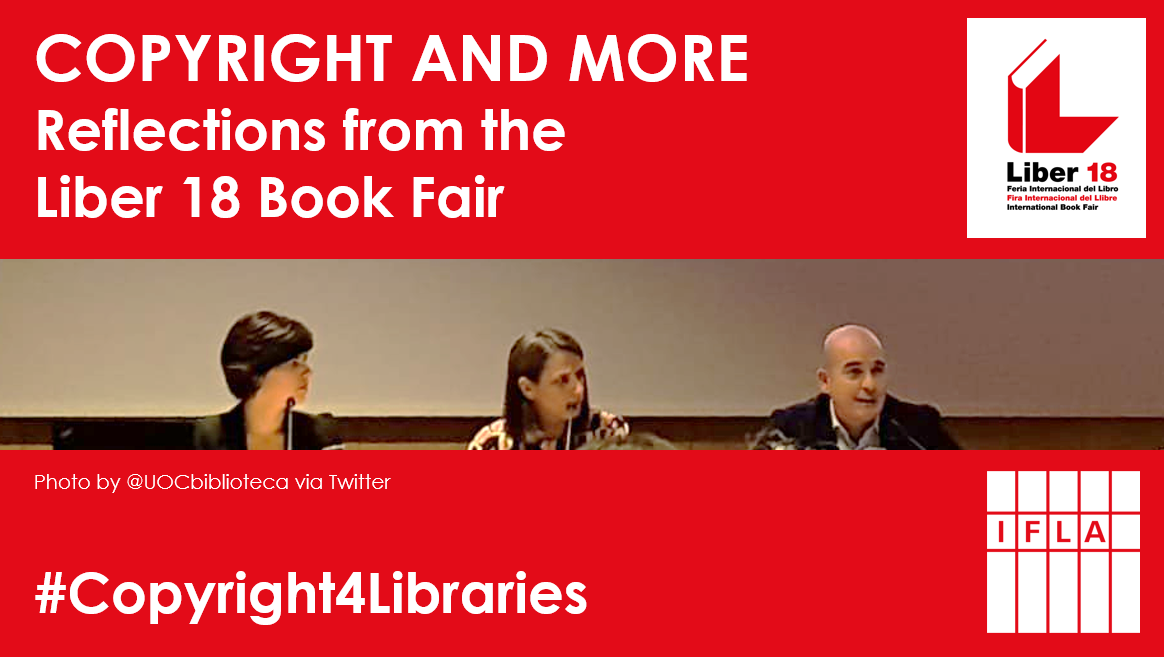
While IFLA has focused most of its efforts throughout the European copyright reform process on those provisions that are most relevant to libraries, it is clear that for many, Article 13 is where it’s at.
This makes sense. Article 13 is a big deal, threatening to overturn one of the key pillars of the development of the internet – the idea that intermediaries (platforms, forums, services such as Dropbox), should not be held liable for content uploaded by their users.
By changing this, and making intermediaries liable, the Directive risks placing huge pressure on such platforms – which have taken on a massive role in the way we communicate and express ourselves – to filter content even before it is uploaded.
In effect, users would be treated as guilty until proven innocent. And the tools used to check innocence are flawed, given their inability to spot legitimate uses of works, and the fact that there will be little penalty for platforms from blocking free speech.
Aware of how controversial this is, supporters of Article 13 have tried to argue that there is an alternative. Platforms could sign blanket licences that could cover all works that could potentially be uploaded. They point out that the new Article 9A, which offers legal clarity to Extended Collective Licensing (ECL) schemes, allows for this.
To offer a short definition, ECL schemes are those where a collective management organisation (CMO) – which usually manages licensing for its members – can also sell licences for non-members, and should then try to redistribute royalties to these non-members.
The argument can seem attractive, and would doubtless benefit the biggest platforms (the only ones who can pay for such blanket licences) and the collective management organisations that run such schemes.
However, two pieces of research produced by IFLA last year underline the fundamental problems with the assumption that Article 9A is what will make Article 13 workable.
Patchy at Best – CMO Coverage in Europe
A first looks at the coverage of collective management organisations – i.e. in how many countries, and how many sectors, do CMOs exist. In effect, to be able to offer a blanket licence for works in a particular sector, there needs to be a CMO in the first place. But this is far from being the case everywhere.
As a survey across EU Member States and beyond underlined, coverage is patchy at best, both in terms of countries and sectors. Barely 60% of countries covered have CMOs in sectors such as photography and broadcasting rights, and only half have them for film.
The consequence risks being that there is an effective block on all content from countries where CMOs don’t exist and so cannot offer blanket licences. There is then a chance, in effect, that people in these countries trying to express themselves – through photos, book reviews, film reviews, critiques or parodies – will simply be unable to do so online.
Clearly, in time, it is possible that new CMOs will emerge to fill the gap. But this is a long way off, and it takes time for a new CMO to gain members and trust.
A High Bar for Successful ECL
A second challenge is in getting the conditions right for extended collective licensing. As an IFLA report drawing on experience from around the world shows, this is not easy.
As the contributors underline, for ECL to be seen as acceptable, it is important that they actually have enough members to be representative, and that these members give them the relevant mandates (across all sectors, less than 20% of countries have CMOs that allow for mass-uploading of works to the internet).
The CMO also needs to offer the relevant rights (not always the case, as the example of Sweden shows), and be well-governed and trusted. Sadly, anecdotal evidence suggests that in a number of countries, the reputation of the CMO can make libraries and others unwilling to pay. There also needs to be a clear and simple possibility to opt out.
More fundamentally still, there are many types of work which are not appropriate for licensing in this way, notably works that were never intended to be sold (such as archival materials), or those which are available under a Creative Commons licence.
At a recent discussion at the London Book Fair, it was not denied that some blanket licensing schemes may indeed involve claiming remuneration for the use of such licences.
The argument that Article 9A offers a solution to the problem created by Article 13 is optimistic at best. In some countries, with a comprehensive CMO infrastructure and a tradition of collective licensing, it may work, although will still leave huge power in the hands of major platforms and CMOs. But this is far from true everywhere.
Indeed, the fact that such arguments are being made, with Article 9A providing a patch for Article 13, simply underlines how much of a mistake Article 13 is in the first place. Europe would do better to lose it.
Read more about IFLA’s work on the EU Copyright Reform.
